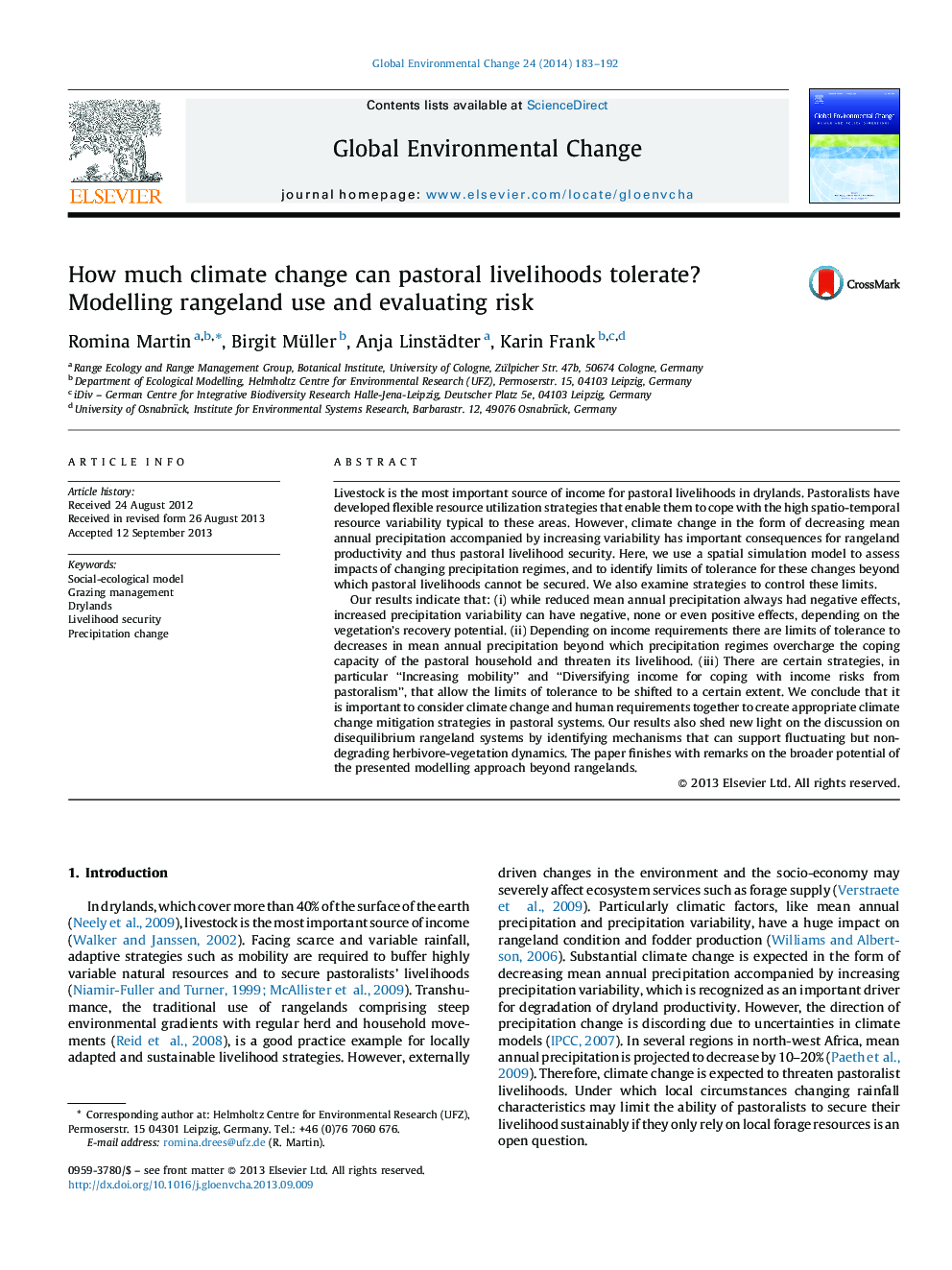| Article ID | Journal | Published Year | Pages | File Type |
|---|---|---|---|---|
| 7470673 | Global Environmental Change | 2014 | 10 Pages |
Abstract
Our results indicate that: (i) while reduced mean annual precipitation always had negative effects, increased precipitation variability can have negative, none or even positive effects, depending on the vegetation's recovery potential. (ii) Depending on income requirements there are limits of tolerance to decreases in mean annual precipitation beyond which precipitation regimes overcharge the coping capacity of the pastoral household and threaten its livelihood. (iii) There are certain strategies, in particular “Increasing mobility” and “Diversifying income for coping with income risks from pastoralism”, that allow the limits of tolerance to be shifted to a certain extent. We conclude that it is important to consider climate change and human requirements together to create appropriate climate change mitigation strategies in pastoral systems. Our results also shed new light on the discussion on disequilibrium rangeland systems by identifying mechanisms that can support fluctuating but non-degrading herbivore-vegetation dynamics. The paper finishes with remarks on the broader potential of the presented modelling approach beyond rangelands.
Related Topics
Life Sciences
Environmental Science
Environmental Science (General)
Authors
Romina Martin, Birgit Müller, Anja Linstädter, Karin Frank,
